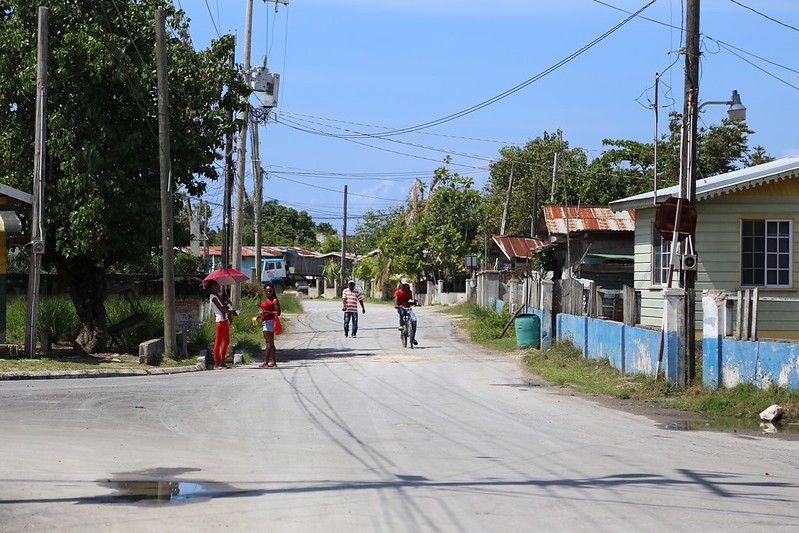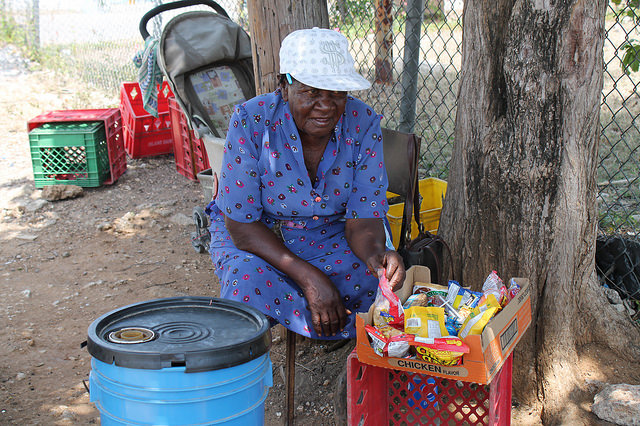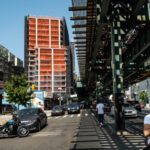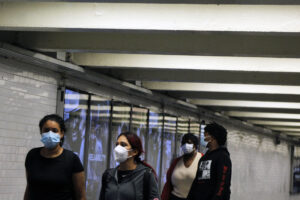Marlon V. Bailey
Professor Anushay Said
Urban Management 601
15 December 2021
CUNY School of Labor and Urban Studies
In examining urban management and governance in Jamaica, and the role it played in Jamaica’s economic demise, we must ask ourselves if Jamaica had better urban management and governance would it be in a better place financially? But what is good urban management and governance and what does it entail. It entails citizen engagement, accountability, and reforming policies that are not working. The ability of Using good urban management and governance is also meeting the challenges facing Jamaica with private sector assistance. Good urban management and governance involves using and practicing transparency in all aspects of government, even when government allocate loan or grant money to other entities, especially if those loans and grants are taken from the loan money received from the World Bank and IMF. This transparency from the Jamaican government may not be forthcoming though, because the Jamaican Government have a long history of never informing the public on how they use or mismanaging the funds, they receive from the World Bank and IMF. But public management and good governance is what I think about when analyzing the dilemma of Jamaica and its economy and also me, trying to make sense of our government continuously mismanage the litany of World Bank and International Monetary Fund loans. I will do so by examining their public management strategies so I might be able to determine the reason why they decided not to practice good governance. Did they not use a well thought out agenda ?, or the reason why is they just don’t care, because they are not the ones drastically affected by their decisions. I say this because, good government would never remove any protectionism agreement that protected Jamaica’s agrarian industries in exchange for Millions of dollars in loans from the World Bank and IMF. Why does this matter, because it was the main policy initiative, but not the only one that created the downward spiral and demise of Jamaica’s agrarian industry. “ Key to its success was a long-term development plan that could have prioritized native infrastructure and resources. But the IMF was not interested in the long-term ” Andrew Pulver. “ Life and Debt”. https://www.theguardian.com.
The IMF and World Bank loan agreement with the Jamaican government coupled with its never-ending economic challenges, since 1972 and many other previous IMF and World Bank loans. Contributed tremendously to Jamaica’s longstanding economical and financial structural weakness, lack of growth, sustainability, and its government inability to successfully address, the lack of good urban management and governance. And you ask why is this critical and very important, for Jamaica’s government to have the ability to properly manage its own economy and overall societal growth. And the importance of why this societal growth must entail the Jamaican government, its private sector, and citizens of Jamaica, working together to establish good urban management and governance the best way possible. Because I think they are not learning from the many previous Jamaican governments past mistakes and is willing to study other nations that have faced similar issues and successfully address them. To explain this we can quote Michael Manley, who stated “ the inability of private banks to make these types of loans ,that gave him no other choice than to go to The World Bank and IMF to procure these loans” Andrew Pulver. “ Life and Debt”. https://www.theguardian.com. Jamaica’s already weak economy structure and urgent need for economical funding, just like every other former colonial nation, allowed the IMF and World Bank to manipulate and pressured the Jamaican government into cutting and relinquishing any type of long-term development plan, that would involve health care, education, and any agrarian products that are produced for exportation to other global nations outside of Jamaica “ The economy of Jamaica is in great difficulties and has been for some time. Jamaica is one of the most indebted countries in the world with debts totaling US$19 billion, equivalent to 140% of GDP ”. Citation and Source “ the economic realities of the other Jamaica, a country suffering from a 30-year IMF austerity regime and multinational domination of the traditional self-sustaining, largely agricultural economy ” Andrew Pulver. “Lift and Debt”. https://www.theguardian.com.

The main reason for this policy swap was to enable the World Bank and IMF to implement their stranglehold conditions on Jamaica’s economy and also allowed them to sidestep Jamaica’s protectionism policy that was crafted to protects its agrarian industry. And by accepting this loan agreement the Jamaican government opened the door to western states, and green lighted the United States Western and Europe agrarian industries to export their agricultural goods to Jamaica under the smoke screen of globalization. This allowed Dole, Chiquita, and Delmonte with their cheaper and more inferior agrarian products, to destroy and take over Jamaica’s agrarian industry. The agreement also end the banana war between the United States and Europe that have been going on for centuries “ As a result, the agriculture-driven economy (above left) has been destroyed by imports, leaving the local people to struggle in poverty and work in sweatshops (above right) in an IMF-designated zone free of government regulation and union organizing” Susan Dunne. “How The IMF Destroyed The Economy of Jamaica”. https://www.courant.com.
So, one may ask if the Jamaican government sought out any other alternative for procuring loans from other global financial entities? The answer to that question is no. The Jamaican government with its history of bad urban government and governance was not regarded by other global financial institution as a good financial investment, so they were not forthcoming in granting the Jamaican government any kind of loan, that would help them stabilize the Jamaican economy, or under conditions that were suitable for Jamaica to recover structurally and economically. Without any leverage to negotiate better loan conditions to stabilize Jamaica’s economy. Jamaica’s weak industrial elite, pressured the Jamaican government into taking the IMF and world Bank loan under the condition stated, knowing full well that these conditions would destroy Jamaica’s agrarian industry. But this was not their concern, or did they care, their only focus was on using the Jamaican government, to allocate to them grant and loan money for their own investment funding purposes. These investment funding channel to them by the Jamaican government was usually facilitated through a state own Jamaican agency called Jamaican Development Bank. This practice and decision making was due to continuous bad urban management and governance practice, the Jamaican government use to finance Jamaica’s private sector investments, doing it with no regard for the well fare or well- being of Jamaica ,its people, culture, or financial sovereignty “Ten years later, Manley returned to office, accepting the impossibility of creating an independent economy, and embracing neo-liberal policies as the only solution, much to the delight of the US and IMF” Andrew Pulver. “Life and Debt.” https://www.theguardian.com.
The mismanagement of World Bank and IMF funds didn’t stop there because the profit share the Jamaican government receives from the international company mining Jamaica’s bauxite, never went back into the development of Jamaica’s infrastructure and economic development. Although they received profit return during the period of 1972-1976 , under Michael Manley the Prime Minister of Jamaica at that time. He was elected in 1972, facing widespread social problems through Jamaica, such as increase oil price in 1973, the high cost of import, high unemployment at 23.3 percent, migration of skilled and unskilled Jamaicans. Leading to the weakening of Jamaica’s economy, the rise of Jamaica deficit payments to $ 300 million in 1975, preventing foreign investments the Jamaican government relied on for Jamaica’s survival. This also reduce economic support from other international entities “ Abolition of food subsidies and currency devaluation made the cost of food rocket, while the IMF held down wages. Health, education and housing were run into the ground” Andrew Pulver. “Life and Debt.” https://www.theguardian.com.
Although urban mismanagement and the lack of good governance plague the Jamaican government. Jamaica’s constitution did not allow or permit the prosecution of any Jamaican political figure or members of the bourgeoisies for mismanagement or corruption from my experience. This maybe, because going up against corruption in Jamaica is very risky. And to be also considered, I believe is the mindset of many Jamaican politicians and citizens, displaying more patriotism towards Jamaica and less affiliation to the two major political party. The Jamaican Labor Party and People National Party. This would allow my fellow Jamaicans, since 1962 to rise above political violence and look beyond factionalism, political violence, henchmen affiliation and rally more around creating political change and economic independence for Jamaica and its people “ This gave the IMF and World Bank the leverage to impose large-scale structural adjustment policies. The impact was devastating” Andrew Pulver. “Life and Debt.” https://www.theguardian.com.
This would prevent future Jamaican industries, like Jamaica’s agrarian industry to be signed away for IMF and World Bank loans. This would put our political representatives on notice, declaring to them, that from now on Jamaicans will be holding them accountable and making sure their political representatives are practicing good urban management and governance, creating more public centered policies, making better public policy decisions. And in retrospect, use reflective practice to call upon their prior knowledge and experience of dealing with the IMF and World Bank. To facilitate more insight, learning, honesty to the Jamaican public, enhance opportunities for Jamaica’s economy, by learning from their past and using that experience to solidify Jamaica’s future. This will prevent them from making impulsive decisions, that may impact governmental procedures. In all areas that include governmental interaction, such as public safety, public interaction, education, and social services. This is usually the focus and task of street level bureaucrats, who are the ones having direct contact with the general public, the liaisons between the government of Jamaica and its citizens. They are the ones with firsthand knowledge of policy implementation by senior government officials and the government. These are the repercussions of bad public policies and the decision made to implement them into the Jamaican constitution, couple with the impact of bad urban management and governance and political power. These were the impact felt by Jamaica’s farmers, the economy, and the citizens that live there. All because of public policy decisions made and why this shows the impact of political power. To explain this we can quote Michael Manley, who stated “ He states that the energy crisis of the early 1970s forced his government to take out loans to cover the rising expenses of fuel-based imports, from fertilizer to gasoline ’’. And the inability of private banks to make these types of loans ,that gave him no other choice than to go to The World Bank and IMF to procure these loans. And as a nation that recently wrestle itself from colonial rule in 1962, Jamaica’s economy was vulnerable from the start. “ the economic realities of the other Jamaica, a country suffering from a 30-year IMF austerity regime and multinational domination of the traditional self-sustaining, largely agricultural economy” Nick Dearden. “Life and Debt”. https://www.theguardian.com.
The future of Jamaica and its people is dismal in my assessment and by the looks of it doom to repeat the mistakes of the past. This is due to the Jamaican bi-partisan 2030 plan, that was put together to strengthen Jamaica’s capacity to sustain itself and the government claim of inclusive and resilient development. All this to me is just bad urban management and governance 2.0. Due to the fact none of these steps are benefitting the citizens of Jamaica, its environment and so far, the overall economical sovereignty of this nation. Although this new vision states that “Jamaica, is the place to live, work, raise your family ,and do business, this is far from the realism of what is happening in Jamaica today. For example, poor Gross Domestic Product (GDP) performance, still a high level of debt, unemployment, poverty, crime, violence, low levels of skilled Jamaican citizens. This also includes a weak Jamaican infrastructure, not enough businesses to produce more high-end quality products and commodities. This coupled with the overall weak economic performance of Jamaica, the rapid growth of urbanization, migration, and globalization is still having a negative impact on Jamaica and the Jamaican family. Partly due to our neglect of long-term issues, our nation has suffered from a number of inadequacies since achieving independence in 1962” Planning Institute of Jamaica . “Vision 2030 Jamaica”. https://sustainabledevelopment.un.org. In closing, my hope for Jamaica and its future is a Jamaican government that take the independence and economical sovereignty of Jamaica seriously. This would require proper urban management and governance and the use of reflective practice to learn from the past. What is reflective practice you may ask, it is more people centered policies, creating urban structures instead of urban forms. It must also involve sustainability planning, for Jamaica, for its people and most of all its economic sovereignty.

Work Cited
Nick Dearden. “Life and Debt” , https://www.theguardian.com, 2003. Accessed 13 Dec.2021
Planning institute of Jamaica. “Vision 2030 Jamaica ”, https://sustainabledevelopment.un.org,
2020. Accessed 13 Dec.2021
Susan Dunne. “How The IMF Destroyed The Economy of Jamaica”. https://www.courant.com
Andrew Pulver. “Life and Debt.” https://www.theguardian.com.












